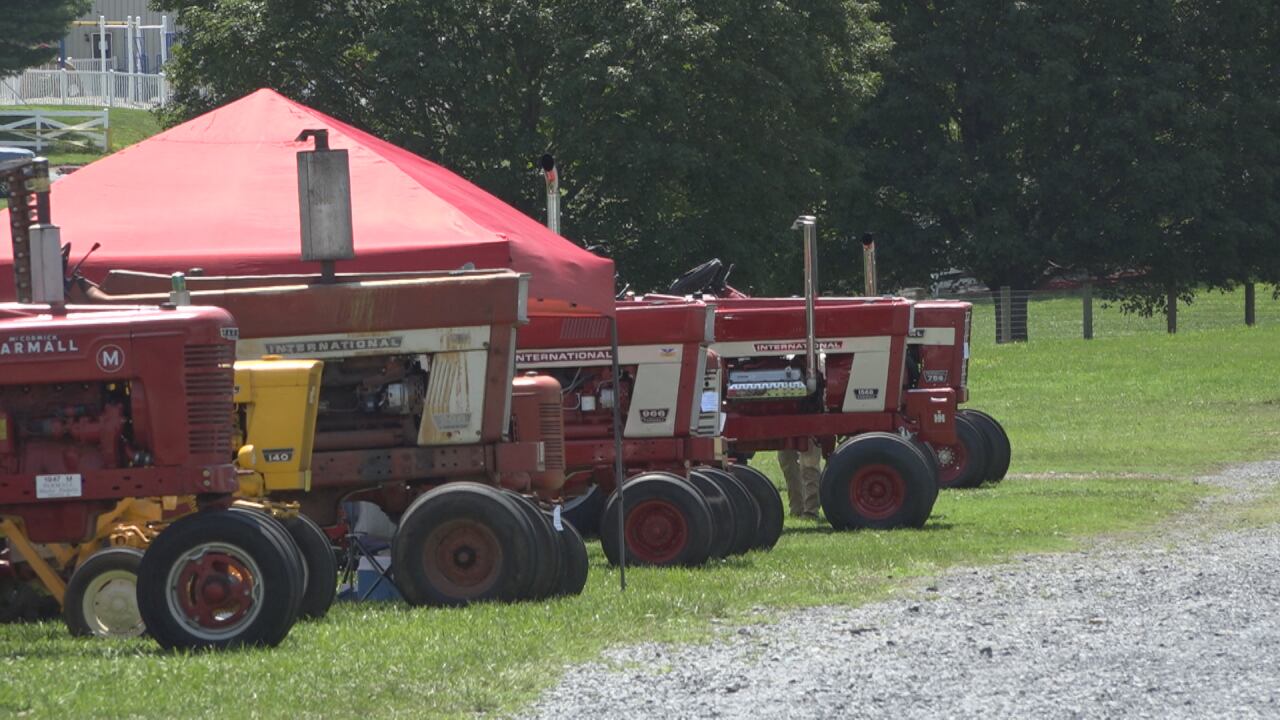A Celebration of Red Tractors and Agricultural Heritage
HARRISONBURG, Va. – The International Harvester Collectors Virginia Chapter 41 recently held its 14th annual summer show, drawing attendees from across the region for a weekend filled with nostalgia, community, and celebration of agricultural history. This event not only served as a gathering for members but also offered a welcoming space for non-members to experience the charm of vintage machinery and the spirit of rural life.
Throughout the weekend, the chapter organized a variety of engaging activities that appealed to all ages. One of the highlights was a kids’ pedal race, which brought laughter and excitement to families attending the event. In addition to this, auctions provided an opportunity for collectors and enthusiasts to acquire rare pieces of agricultural equipment. Another crowd favorite was the tractor parade, where participants showcased their classic red tractors as they made their way through the fairgrounds, creating a vibrant display of history and tradition.
Tolong support kita ya,
Cukup klik ini aja: https://indonesiacrowd.com/support-bonus/
The event was more than just a celebration of machinery; it was a tribute to the valley’s deep-rooted agricultural heritage. For many, it was a chance to reconnect with the past and reflect on the importance of farming in shaping the local community. Greg Shultz, a board member of the International Harvester Collectors, shared his perspective on the significance of such gatherings.
“We get together every year, socialize, tell the same old lies, and just have a good time being around red tractors,” Shultz said. “It’s a way to keep the traditions alive and pass them down to future generations.”
Agriculture has always played a vital role in the valley’s history, and events like this serve as a reminder of that legacy. Shultz emphasized the importance of remembering key moments in agricultural development, such as the founding of the Future Farmers of America in the region and the establishment of the McCormick Farm, which introduced the mechanical reaper. These milestones laid the foundation for modern farming practices and continue to influence the industry today.
In addition to the tractors, the fairgrounds were filled with displays of red trucks and various memorabilia, offering visitors a glimpse into the evolution of agricultural technology. These exhibits were not only visually impressive but also educational, providing insight into how food is produced and the history behind it.
Shultz highlighted the importance of understanding where food comes from, regardless of the type of machinery used in farming. “You gotta know where your food comes from, and despite whatever color tractor you do use, agriculture is important,” he said. This message resonated with many attendees, reinforcing the idea that supporting local agriculture is essential for sustaining both the environment and the community.
As the event drew to a close, the International Harvester Collectors encouraged the public to participate in future gatherings. Whether someone is a lifelong collector or simply curious about the history of farming, there is something for everyone at these annual shows. They serve as a bridge between the past and present, celebrating the enduring impact of agriculture while fostering a sense of community and shared appreciation for the land.







